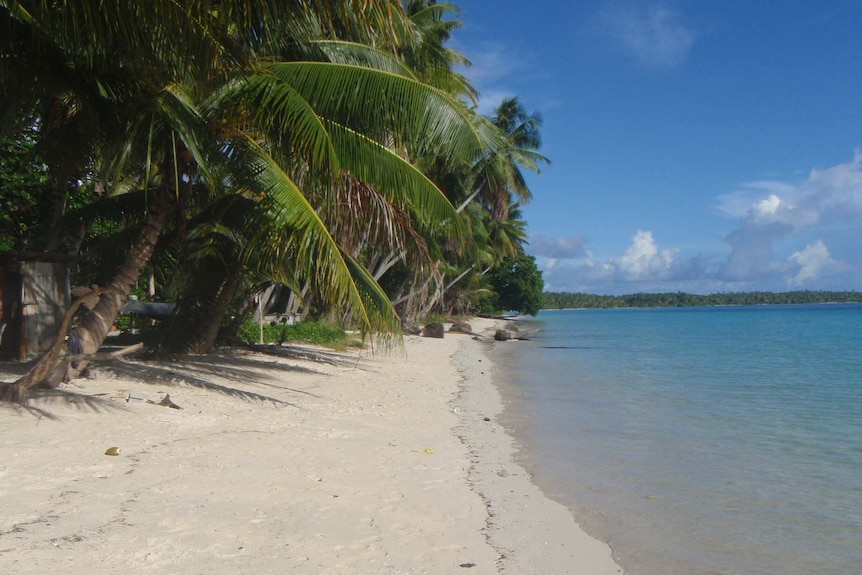Extract from ABC News
Swedish climate activist Greta Thunberg says people can still avoid "the worst consequences" of climate change, but only if we treat it for what it is: "a crisis".
Key points:
- The IPCC says Earth could be a decade away from heating by more than 1.5 degrees Celsius
- It warns this is likely to result in frequent and more severe fires, floods and cyclones
- Greta Thunberg urged people to ask politicians how they planned to address that
Ms Thunberg, 18, made the comments after a landmark report by the Intergovernmental Panel on Climate Change (IPCC) — the world's most authoritative body on climate science made up of hundreds of scientists and governments — warned the Earth could be a decade away from heating by more than 1.5 degrees Celsius.
"We are in an emergency. It's a solid (but cautious) summary of the current best available science," Ms Thunberg wrote on Twitter, referring to the report.
"It doesn't tell us what to do. It is up to us to be brave and take decisions based on the scientific evidence provided in these reports."
However, she added, there were "no real surprises" in the report, saying it confirmed "what we already know".
"According to the new IPCC report, the carbon budget that gives us the best odds of staying below [1.5C] runs out in less than 5 and a half years at our current emissions rate," she wrote.
The report said global warming had now reached 1.1C since industrialisation (1850-1900).
The report warned warming by more than 1.5C could result in frequent and more severe fires, droughts, floods and cyclones.
United Nations (UN) secretary-general Antonio Guterres labelled it a "code red for humanity".
Joëlle Gergis, a climatologist from the Australian National University and a lead author of the IPCC's report chapter on changes in rainfall, said the most important thing people could do was vote.
"Get behind political leaders at every level of government who have a clear vision to reduce greenhouse gas emissions, restore landscapes and our coastlines, to create a more equitable world," she told the ABC.
Pacific Islands '0.4C away from existential catastrophe'
Meanwhile, Pacific Island leaders and activists have issued yet another plea for major emitters to urgently curb emissions and take ambitious steps to fight climate change at the November COP26 climate change conference in Glasgow.
The Pacific has already suffered from more severe cyclones, king tides and increasing drought because of climate change.
Experts warn the IPCC report makes it clear those problems will get much worse if emissions are not rapidly cut, while low-lying Pacific nations may be swamped by rising seas within decades.
Fiji's Prime Minister Frank Bainimarama — who is also the incoming chair of the Pacific Islands Forum — said on Twitter the new IPCC report "puts Pacific Island nations 0.4 degrees Celsius away from existential catastrophe".
"We know what's coming. More importantly, we know how to stop it," he wrote.
Fiji's ambassador and permanent representative to the UN, Satyendra Prasad, said the world only had 84 days until the COP26 meeting, and it was crucial to keep the world from heating beyond 1.5C.
"The new [IPCC] report confirms [a] more catastrophic future for small Pacific states than predicted earlier," he wrote.
"There is no excuse for not delivering on [the] 1.5 degree target."
The secretary-general of the Pacific Islands Forum, Henry Puna, said "we have lost the luxury of time".
"We are on the brink of a climate catastrophe, with a narrow window to act," he said in response to the report.
"Governments, big business, the major emitters of the world can no longer ignore the voices of those already enduring this unfolding existential crisis. They can no longer choose rhetoric over action.
"There are simply no more excuses to be had. Our actions today will have consequences now and into the future for all of us to bear."
The major concern for the Pacific, he said, was the forecast rise in sea levels — 2 metres by 2100 and a "disastrous" potential 5 metre rise by 2150.
"The report also found that extreme sea level events that previously occurred once in 100 years could happen every year by the end of this century," he said.
"To put this into perspective, this will result in the loss of millions of lives, homes and livelihoods across the Pacific and the world."
The upcoming COP26 conference has to lead to major emissions reductions, he said.
"We have only one planet and one final opportunity to ensure its survival," he said.
"We must leave a future for our children to inherit."
Kathy Jetn̄il-Kijiner, the climate envoy for the Marshall Islands, also warned that Pacific Island nations desperately needed the 1.5C goal to stay within reach.
"The latest IPCC climate report shows that this goal is now quickly slipping beyond our grasp. COP26 must be the moment where countries ensure this goal remains within reach," she said.
The report found that on the current trajectory, the world is likely to hit warming of 1.5C by 2030.
Even in the most ambitious scenario, it would likely hit 1.5C by about 2035, it said.
In all scenarios, getting the world back under that extra 1.5C would require massive reforestation, or technology, to remove carbon dioxide from the atmosphere, which has yet been proven to work at scale.
No comments:
Post a Comment